Part Two
CHANGING TIMES
There was a ten year hiatus after the end of WW!! in which Democrat Harry Truman and Republican Dwight Eisenhower served as Presidents over an America in transition from a war status to one of growth and prosperity.
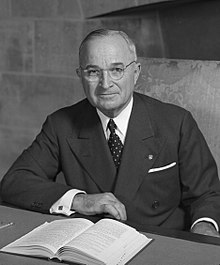
The advertisements of the day based on the creativity of the Mad Men on Madison Avenue, glistened with smiling, young housewives thrilled with their new homes and kitchen appliances, two children happily enjoying school and homework at the kitchen table and young men in suits, ties and hats off to the commuter trains to work in cities getting bigger as the suburbs grew around them.
This was a bubble of pure delight that went on so long…almost boring.
And then came the 1960’s and an explosion of social fury and a war nobody seemed to understand.
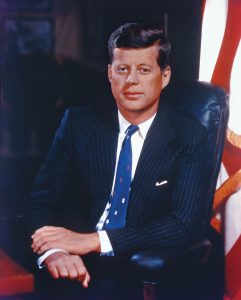
War by young men who did not want to fight for something they did not understand as college campuses became a hotbed of noise and disruption.
Amid all of this came Martin Luther King, his Freedom Marchers and the Southern Christian Leadership and their determined struggle to end the open racial discrimination in the South.
The assassination of President Kennedy after only a thousand days in office stunned an already struggling America and the ascension of Lyndon Johnson left it uncertain.
Johnson, the most powerful Senate Majority leader in history, coming from a hardscrabble life in Texas was determined to continue what Kennedy had started in regard to King and his cause and pushed hard for the passage of the Civil Rights bill and then later the Voting Rights bill.
He won his fight. But by winning the Democratic Party lost the entire southern tier of its political strength. The Southern States, furious that one of their own, LBJ, had actually moved to ease racial injustice, left the Democratic Party en masse. Every Southern State would no longer support Democratic policies in either State or National elections. What is so important in American politics – a sure thing – was gone.
Anxious to take advantage of the Democratic Party’s sudden turn of events, the Republican Party looked West to find a new voice. And it did
THE REPUBLICAN PARTY
Richard Nixon was not it.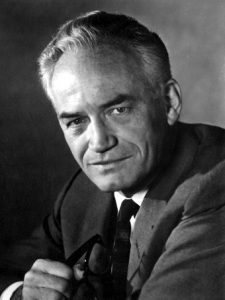
But a Republican leader did appear bringing with him a ruling philosophy which became the Republican Party’s essence.
Barry Moses Goldwater would single-handedly alter the power base of the Republican Party from the wealthy Eastern states to the West.
He would become a five term Senator from Arizona and the Republican Party’s Presidential nominee in 1964. Goldwater came to epitomize the true meaning of conservative. Many Republicans today say that they are fiscally conservation and socially liberal. That definition came from Goldwater. Goldwater’s views on the Constitution – that it limited the role of government, on the right of freedom and justice for all Americans regardless of color or station, on the place of the religious right in this country which he thought was all wrong and destructive… made him without question what political historians called the conscience of true conservatism and libertarianism.
He believed in limited government but with strong fiscal constraints He believed that welfare was wrong because it bred dependency on government. He was a member of the NAACP and voted for the first Civil Rights Act as he worked to desegregate Phoenix. He said that you didn’t have to be straight to serve in the Army, just shoot straight.
He told Pat Robertson and Jerry Falwell, leaders of the evangelical movement in the Republican Party that they were no good for anyone but themselves and to get out of politics.
There was a serious intensity about him that bordered on that of a Minister preaching to his congregation and it influenced those Americans who came to see him through fearful eyes…though his actual views carried no such promise.
The best example of this disconnect- what he was not who he seemed to be – was his famous statement: “Extremism in the defense of liberty if no vice” at the Republican Party’s 1964 Presidential Convention. The delegates exploded in a roar of support …the noise drowning out the rest of that sentence “And moderation in the pursuit of justice is no virtue”.
America was embroiled in the Vietnam War. Barry Goldwater said that if he were President he would turn North Vietnam into a mud puddle in one week. Lyndon Johnson and the Democrats painted him as a warmonger and someone not to be trusted with his finger on the Atomic Bomb …and it worked.
Goldwater had built a Presidential campaign against the man he thought would be President, John F. Kennedy. But Kennedy was assassinated and Lyndon Johnson was an entirely different opponent. Goldwater made the cardinal political sin by letting his opponent make his public image for him…and was crushed at the polls.
But he maintained his influence on the Republican Party. In 1980, years after his defeat, the Republican Party saw his enthusiastic endorsement of California Governor Ronald Reagan for President as a passing of the torch.
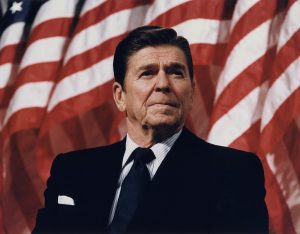
Goldwater wanted small government with controlled budgets. Reagan said government was the problem and as President began to starve it with sharp budget cuts even as he significantly lowered taxes on corporations and the wealthy.
Reagan gave us David Stockman and Supply-side, trickle-down economics which insisted that wealthy corporations and individuals would do better with more money and the rest of the nation would do well because of it. He talked about erecting safety nets that would protect people at the bottom.
George HW Bush running against Reagan for the Presidential nomination called that voo-doo economics. Years later Stockman would repudiate his own theories as being unworkable.
And yet Republicans today still insist feeding the wealthy is the way to make America great again..and that government should not exist to help people.
As Governor of California Reagan left the State in debt for more than a generation. By the end of his eight years as President the government had amassed the greatest debt America’s history.
But when he received the Republican nomination his team had seen where Goldwater had lost votes and knew how to win them.
As a former head of the Screen Actors Guild, Reagan appealed to union members across the Midwest and South. Democratic President Jimmy Carter was anything but a liberal and had little time for strong labor relations as he seemed to lose focus midway into his first term When the votes were counter the Blue-Dog Democrats in unions across the country had switched their votes to Reagan.
As President Reagan would break the Air Traffic Control Union in Washington when they went on strike for better working conditions and pay.
Reagan understood the essential racism in America and the resentments that existed when blacks were helped by the Civil Rights Act and moved quickly to capitalize. He saw welfare as a perfect foil claiming that women receiving welfare…black women now twenty years after government welfare was designed to help white war widows, were “welfare Queens” taking money and driving Cadillacs.
Surrounded by Hollywood leading men who hid their true sexual identities to protect their careers, Reagan knew about the gay life and its perils. Yet his own son, a gay man, said his Father did nothing to help that community when AIDS began to ravage the lives of hundreds and then thousands of men. It took him two years to finally simply acknowledge the problem.
And he fully opened the Republican Party’s door to the Falwells and Robertsons welcoming the religious right with all his might.
Reagan, serving two terms, gave the Republican Party a strong philosophical base…taking their views in the 19th Century to new heights.
The Democrats went in a very different direction.
THE DEMOCRATIC PARTY
The Democratic Party first under two southern Democratic Governors, Jimmy Carter and then Bill Clinton did nothing to retain the best of the New Deal approach to government helping people. In fact, it seemed to lose touch with working people entirely.
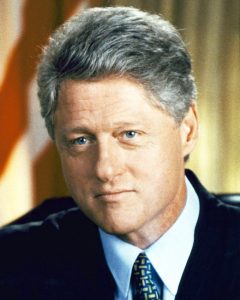
With the help of Wall Street friends, he did finally end the crushing debt run up by Reagan, but in so doing did four things that would live beyond his personal travails: he ended the legislated division between investment banks and commercial banks which would result in the 2008 financial crisis which almost brought down our economy; he made certain that student debt would hold throughout life and death until it was repaid; he passed a crime bill that incarcerated hundreds of thousands of black men for which he apologized years later; he ended welfare provisions which brought 40% of poor children under the poverty level.
His “triangulated” policies carried the Democratic Party philosophy out of any meaning whatsoever.
By the end of Clinton’s term the role of government remained as Reagan left it: money talked, the free market would reign, working and small business America would continue to get less help from the government and while America remained the most powerful nation the World had ever seen, its political parties would be little more than a shadow of themselves…little more than two colors on an election night map…fixed in place…representing the power structure first…and last.
SOCIAL MEDIA
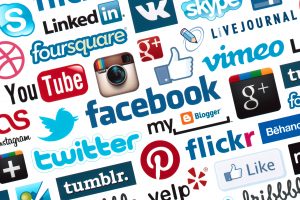 Once, political parties mattered because they gave favored people jobs.
Once, political parties mattered because they gave favored people jobs.
Once the news media found intelligent ways of presenting what political parties meant and how they operated.
But time and a diminished public education system took its toll and the news media no longer was America’s “fourth estate” helping us understand what we were seeing and hearing from the political system.
And in that vacuum came the computer and social media’s ability to bring ANY MESSAGE RIGHT INTO THE HOME OF MOST Americans…so acutely targeted that they are able to know so much about us it seems they know each of us personally.
Political messages from candidates flow at us that way. Money raised by political parties help fund those messages…but they belong to the candidates themselves not a political party.
In New York City where the political affiliations matter less than on a statewide or national basis, social media capabilities are the key to success.
WHERE WE ARE
Today in a totally new national environment, sick and dying from a very different disease than the World has known but fighting back despite greater losses than anywhere in the World, America has become a debtor nation, producing little in the way of goods for sale besides weapons and certain farm products.
Its once astounding education system has produced a nation so fundamentally ignorant of basic facts that it can sincerely believe the most fantastic claims about what is fact as if a fact has two definitions.
The Republican Party sits fundamentally quiet as a new Democratic President known for his essentially centrist views and his ability to compromise has exploded the Reagan philosophy of government into 1.9 trillion pieces in a nation which has spent more money to fight Covid than it did in two World Wars, Vietnam and the 9/11 fallout.
Perhaps the Democratic Party will now focus again on what Americans need and how government can help them.
Perhaps now the Republican Party will concentrate on the society and its culture…its ’cancel culture’ a kind of simplistic attempt to counter the insistence of our racist caste system.
Without knowing we would like to predict that America will do what no other society has ever done in the recorded history of time: return to the top once it has lost its place. If so, it has a long way to go.

3-20-2021
Good article on how our two political parties have evolved (if that is the right term to describe their current situation). Our parties now are pretty more or less tribes, and not the great coalitions that hugged the political center a generation ago. The Democrats may be in a better position to reach for the center. The GOP does not resemble the party that I joined when I was in college. My heroes were Teddy Roosevelt, Dwight Eisenhower, Gerald Ford, George H. W. Bush, Howard Baker, John Anderson; and closer to home — Nelson Rockefeller, John J. Marchi, Susan Molinari, Louis Lefkowitz, Mike Bloomberg and Jack Javits.
The GOP is now at a crossroads — it can either become a 21st century version of the “Know-Nothing” Party or return to its Lincolnian roots and principles of conservative, compassionate government.
I fear the former; if so, it is high time for a new centrist political party of independents, moderate Democrats and discerning Republicans. To paraphrase Ronald Reagan, “the time is now.”
— Stephen R. Rolandi
Yes, as Prof. Rolandi has stated, a new major party is desired, yet there hasn’t been a new one since the 1850s although contenders have come and gone. The Whig Party succeeded the Federalist Party after the latter’s collapse at least partly due to factionalism, and the Whigs suffered the same fate decades later to be succeeded by Republicans. Are we to hope for the same for that party?